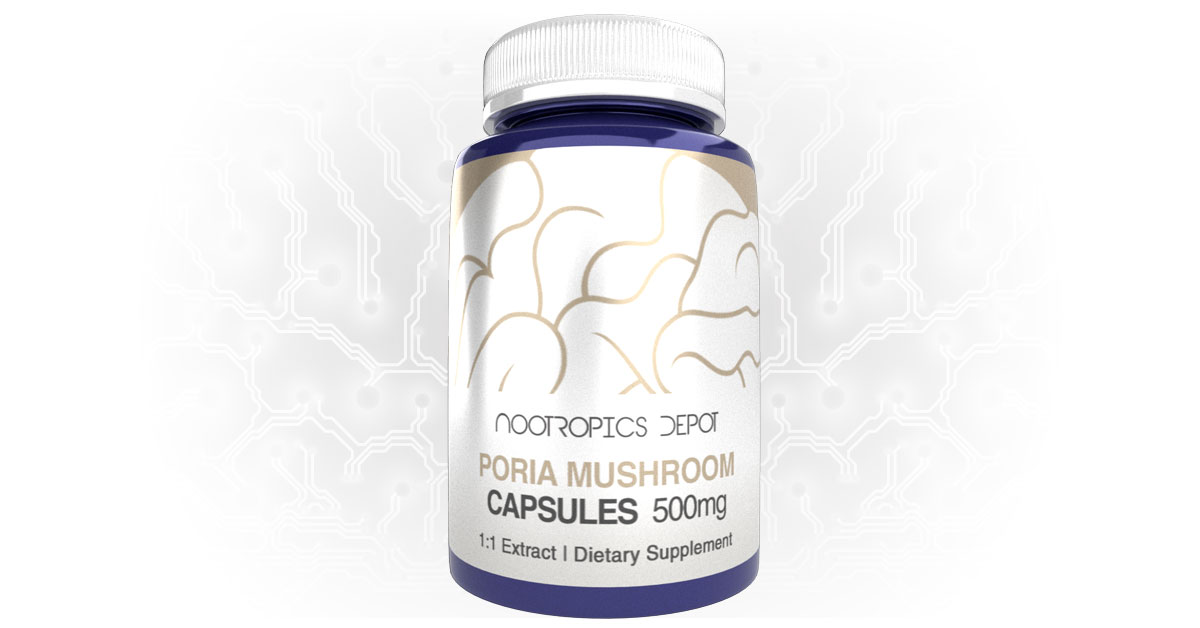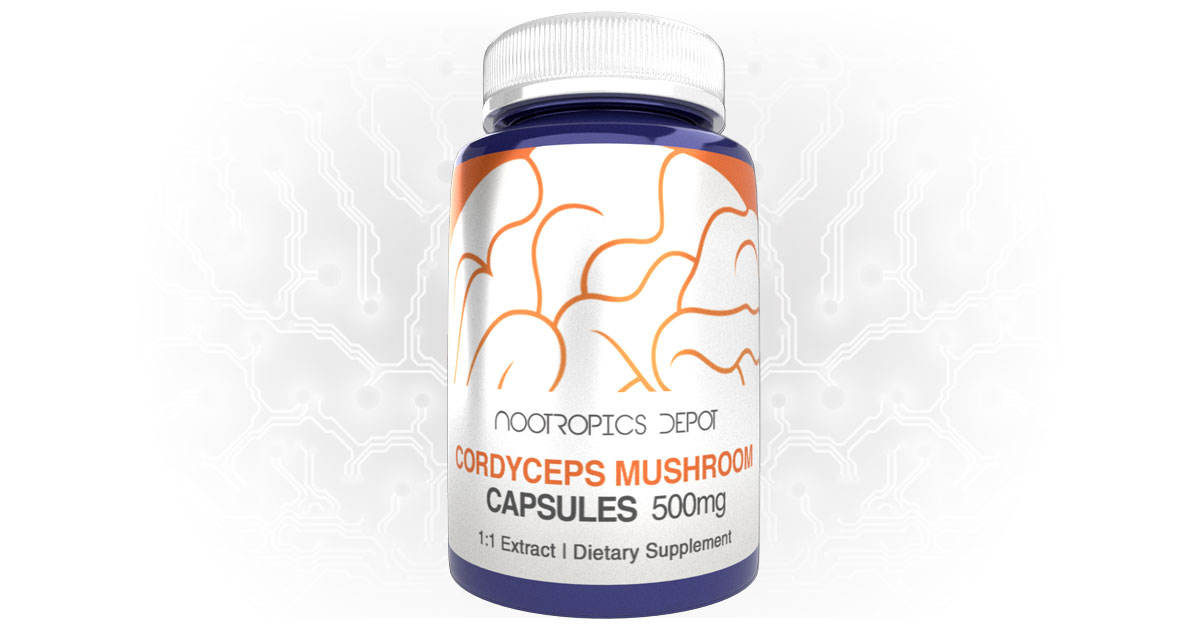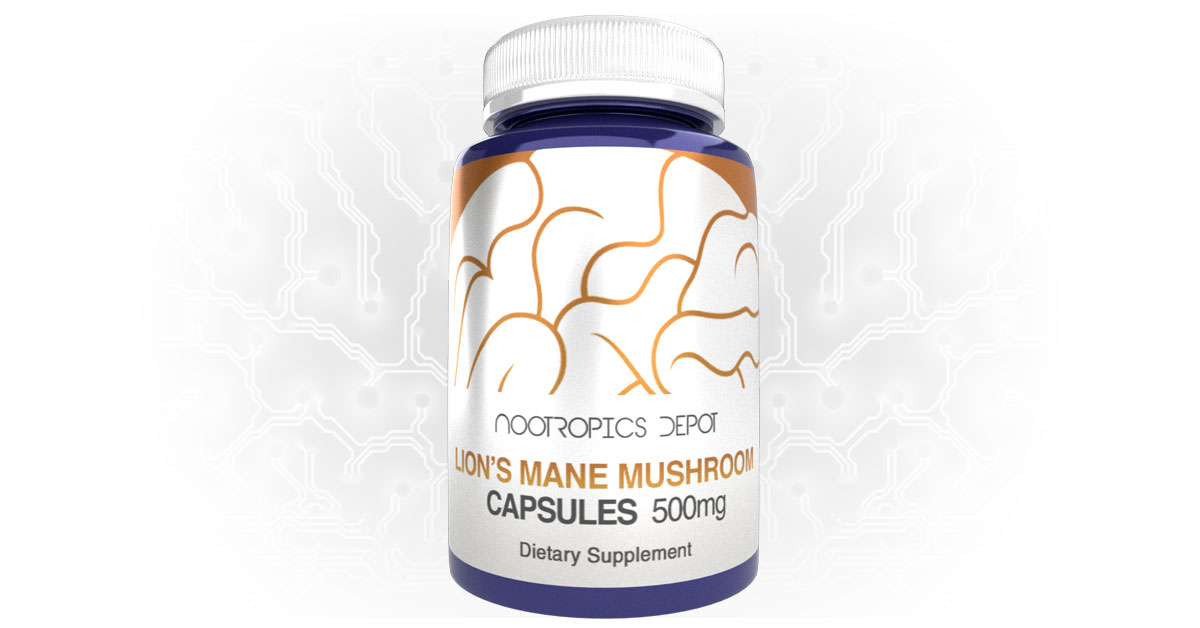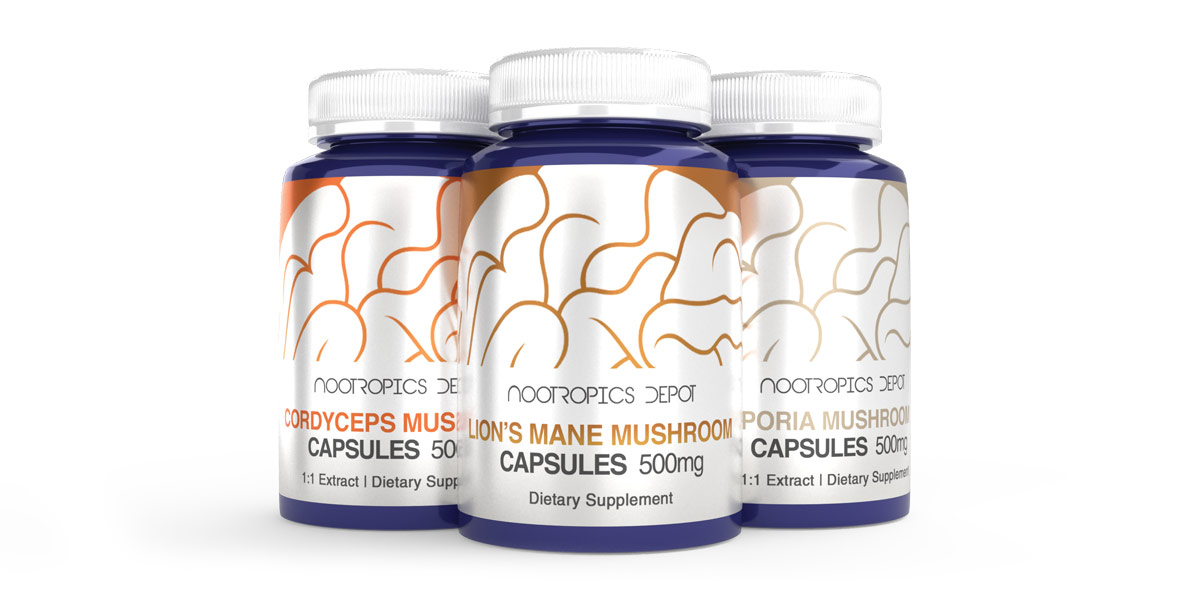The Best Nootropic Mushroom Extracts
Posted by Nootropics Depot on 19th Jul 2019
Nootropic Benefits of Mushroom Extracts
Mushroom supplements have been all the rage in the supplement world over the last few years and there is good reason for them to be so popular. There are many different types of mushroom supplements and they each have a unique set of effects such as immune boosting effects, cardiovascular health boosting effects, mood boosting effects and arguably the most interesting: nootropic effects.
What is a Nootropic?
A nootropic is any compound or plant extract which exerts cognitive support. However, not just any cognition enhancing compound or natural plant extract can be considered a nootropic. True nootropics need to adhere to a specific set of rules. The rules were established by the inventor of the word nootropic, a Romanian psychologist and chemist named Corneliu Giurgea. Above all else, a nootropic should be exceptionally safe and non-toxic. Mushroom supplements fit this main requirement and, in fact, all of the mushroom supplements Nootropics Depot carries are actually very good for general health. In conjunction with that, we feel that mushroom supplements deserve some more recognition as highly capable natural nootropics. Below follows a list of three of the best nootropic mushroom supplements currently available.
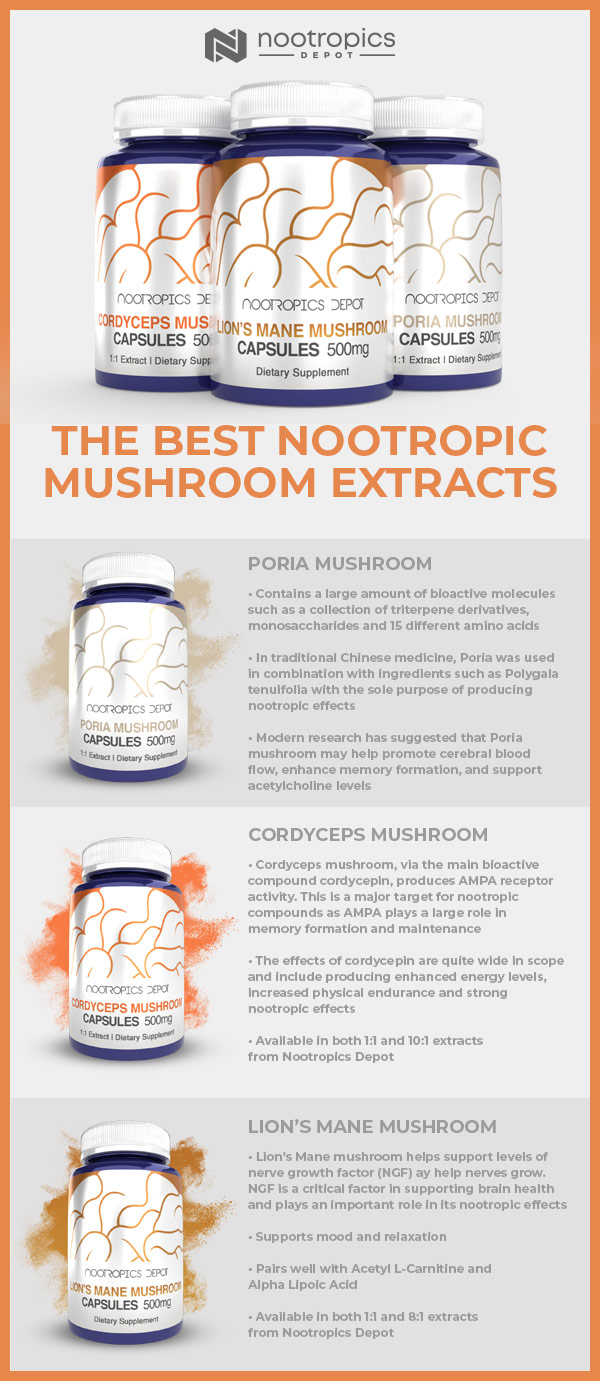
Nootropic Benefits of Poria Cocos Mushroom
Poria is a very interesting mushroom that grows as a big scletorium under the ground. The scletorium very closely resembles a coconut which is why one of the names for Poria mushroom is Poria cocos.
The Poria scletorium contains a large amount of bioactive molecules such as a collection of triterpene derivatives, monosaccharides and 15 different amino acids! These compounds work together to produce a wide array of highly beneficial effects that support whole body health with an emphasis on producing nootropic effects that help boost our brain function.
It has been known for a very long time that Poria mushroom has some extraordinary nootropic effects that closely fit the true definition of a nootropic. In traditional Chinese medicine, Poria was used in combination with ingredients such as Polygala tenuifolia with the sole purpose of producing nootropic effects in order to facilitate optimum cognitive function. Modern research has suggested that Poria mushroom may help promote cerebral blood flow, enhance memory formation, and support acetylcholine levels!
If you want to turn the nootropic effects of Poria mushroom up to 11, then we would strongly recommend combining it with our Polygala tenuifolia extract for a great nootropic stack utilizing only natural nootropics! Polygala tenuifolia has stand alone nootropic effects, just like Poria mushroom. Combining Poria mushroom and Polygala tenuifolia helps enhance each others nootropic benefits to create a remarkable natural nootropic stack!
Nootropic Benefits of Cordyceps Militaris Mushroom
Cordyceps is a fascinating, little, bright orange mushroom. The variety that Nootropics Depot offers is called is Cordyceps militaris which can grow on regular growing substrate and produces large amounts of a key bioactive compound called Cordycepin. This is in stark contrast to another species of Cordyceps called Cordyceps sinensis. It has been found that Cordyceps sinensis, in contrast to Cordyceps militaris, contains very small amounts of cordycepin. Cordycepin is a very interesting molecule that is based on the structure of adenosine, which is also found in Cordyceps mushroom. The effects of cordycepin are quite wide in scope and include producing enhanced energy levels, increased physical endurance and strong nootropic effects. Most importantly, cordycepin is responsible for the bulk of Cordyceps benefits, which means that Cordyceps militaris should produce more prominent Cordyceps benefits than Cordyceps sinensis.
Cordyceps mushroom, via the main bioactive compound cordycepin, produces AMPA receptor activity. This is a major target for nootropic compounds as AMPA plays a large role in memory formation and maintenance. By increasing AMPA activity, the growth of new neural connections is facilitated. This is very important for cognitive function as one of the main mechanisms by which we store memories, is by physically producing new connections in the brain. This process is influenced by a large variety of factors and neurotransmitters. However, AMPA receptors are one of the most important receptor systems for facilitating this process.
In addition to the nootropic Cordyceps benefits that can be reaped from its cordycepin content, Cordyceps benefits helps support mood. Large scale research has recently found that AMPA receptors play a pivotal role in mood, and it has been found that signalling through AMPA receptors can help enhance mood. What’s better than being in a great mood all day while also storing memories with ease?
A Cordyceps supplement, similar to a Poria supplement, goes a little bit further than simply acting like a natural nootropic. A Cordyceps supplement may also help bolster our immune system, while keeping our cardiovascular system performing at optimal levels. In fact, it has been shown that supplementing Cordyceps can significantly help boost physical endurance. In our opinion, this makes a Cordyceps supplement a great choice for the athlete seeking a natural nootropic edge!
So, which Cordyceps mushroom extract will have the most prominent nootropic effects? We carry two Cordyceps extract, one of which, the Cordyceps 10:1 extract, has a much higher amount of cordycepin in it. With this in mind, the 10:1 Cordyceps extract would be the most ideal candidate for utilizing nootropic cordyceps benefits. However, the 1:1 Cordyceps extract is also a highly capable extract. To learn more about the two extracts, we would recommend reading our blog comparing the two by clicking here.
Nootropic Benefits of Lion’s Mane Mushroom
Lion’s Mane mushroom is the most well known nootropic mushroom and has seen an enormous rise in popularity over the last few years. The reason why Lion's Mane mushroom is so sought after is quite simple: it just works! Both research studies and anecdotal reports have shown that Lion's Mane mushroom has quite prominent nootropic effects. This fast rise to mushroom stardom has also caused it’s fair share of issues with this mushroom -- the main one being the use of mycelium on grain.
It’s common practice for many mushroom extract vendors to produce their mushrooms domestically. However, growing whole fruiting body mushrooms can be quite labor intensive, consume large amounts of space, an is overall a fairly expensive process. The cheaper alternative is to grow mycelium. To produce mycelium, Lion's Mane mushroom spores are used to inoculate a substrate such as brown rice. A root system (mycelium) then starts to form in the substrate, and under the right conditions, fruiting bodies can sprout from the mycelium. What many domestic mushroom producers do, however, is take the myceliated substrate and grind everything up including the substrate. This ultimately means that you are getting small amounts of mycelium mixed with cheap grains such as brown rice. The current narrative touted by these vendors is that only the mycelium of lion’s mane has positive effects on cognition, and thus, a lot of consumers end up getting tricked into buying inferior mycelium on grain Lion's Mane mushroom.
Through countless hours of research, we have come to the conclusion that the mycelium does in fact contain beneficial compounds that are not found in meaningful concentrations in the fruiting body of the mushroom. However, all human studies on the cognition-enhancing effects of Lion's Mane mushroom have been done with the whole fruiting body mushroom. There is also clear evidence that the Lion's Mane mushroom fruiting body contains many other beneficial compounds including those that help bolster cognitive health. The Lion's Mane mushroom we carry is pure fruiting body of the highest quality and we do not accept inferior mycelium on grain products.
How Lion's Mane Mushroom Works
So, what does Lion's Mane mushroom actually do? Lion’s Mane mushroom helps support levels of nerve growth factor (NGF), which as the name may have given away already, may help nerves grow. NGF is a critical factor in supporting brain health and plays an important role in the nootropic effects of Lion's Mane Mushroom. Likely through its same NGF boosting properties, the Lion's Mane mushroom has also been shown to positively impact mood and relaxation.
The most interesting aspect of all of these nootropic mushrooms is that they not only have nootropic effects, but they also have significant health-boosting effects. Lion’s Mane mushroom is no exception to this and has a plethora of beneficial health effects such as increased immune function, regulation of oxidation and inflammation, and even helps promote healthy cardiovascular function!
Stacking Lion's Mane Mushroom with Other Supplements
If you want to maximize the cognition enhancing effects of a Lion's Mane mushroom supplement, we would suggest combining it with Acetyl L-Carnitine and OptimALA for a great nootropic stack utilizing natural nootropics. Acetyl L-carnitine and OptimALA, will help boost the NGF effects of a Lion's Mane Mushroom supplement even more which may lead to stronger nootropic effects! We have found that a Lion's Mane mushroom supplement with Acetyl L-Carnitine makes a simple, balanced and motivating nootropic stack that has a profound impact on memory recall!
Now the big question is, which Lion's Mane extract should you go for? The very short answer is that for nootropic effects, the Lion's Mane 8:1 extract will be the best choice. However, the 1:1 extract also has some unique effects, though the 8:1 will exert more nootropic benefits than the 1:1. The long answer can be found in our blog comparing our two different Lion's Mane extract offerings.
Buy Mushroom Extracts from Nootropics Depot
Click here to browse all available mushroom extracts from Nootropics Depot
View more Nootropics Depot blog articles by clicking the links below:
Gotu Kola Benefits - How This Ayurvedic Herb Supports Cognition, Sleep, and Skin Health
L-Theanine Benefits: What You Should Know About This Calming Amino Acid Supplement
The Top 5 Natural Sleep Supplements That Aren't Melatonin
The Best Supplements to Support Collagen Synthesis and Skin Health
Dynamine Methylliberine: A Fast-Acting, Natural Ingredient That Boosts Focus and Energy
Ashwagandha Benefits - An Ayurvedic Herb For Stress Support, Immune Health, and Restful Sleep
CoQSol-CF CoEnzyme Q10: The Superior CoQ10 Supplement Over Grocery Store Brands
The Top 5 Milk Thistle Health Benefits
A Closer Look At The Top 5 Taurine Benefits
Melatonin Supplements: Did You Know This Popular Over The Counter Sleep Aid Is Often Overdosed?
How To Boost Your Immune System With The Top 5 Immune Supplements
Nootropics Depot's Guide to the Top 10 Natural Nootropics of 2018
EpiCor Immune Health: The Natural Immune Booster Supplement You May Not Know About
Nigella Sativa: The Top Health Benefits of Black Seed Oil Extract
Magnesium Glcyinate vs. L-Threonate: Which Is The Best Magnesium Supplement?
Cognizin Citicoline: A Choline Supplement That Supports Healthy Brain Function
7,8-Dihydroxyflavone: A Brain Health Supplement That May Support Neuroplasticity
Creatine: A Nootropic for Bodybuilders, Athletes, Vegans, Vegetarians Alike
How to Find the Best Curcumin Supplement and What to Know Before You Buy
Comparing Rhodiola rosea Extracts: Rosavins vs. Salidroside
Berberine: A Look at the Potential Benefits of this Versatile Supplement
Lion's Mane Mushroom: Comparing our 1:1: and 8:1 Extracts
Nitric Oxide Boosters Reviewed: L-Citrulline, Agmatine and AAKG
Red Reishi Mushrooms: Comparing our 1:1 and 8:1 Extracts
Comprehensive Guide to the Best Anti-Aging Supplements
Cordyceps Militaris Mushrooms: Comparing our 1:1 and 10:1 Extracts
Bacognize vs. Synapsa: Which Ayurvedic Herb is Right for You?
The Nootropic Synergy of Caffeine + L-Theanine
L-Citrulline vs. L-Citrulline DL-Malate: Which is Best?
Shilajit: A Look at this Amazing Ayurvedic Compound
The Ultimate Guide to Nootropics
Mushroom Extracts: Whole Fruiting Bodies vs. Mycelium On Grain
Teacrine: The Alternative to Caffeine
Zembrin: A Natural Way to Boost Your Mood
Ashwagandha: KSM-66 vs. Sensoril
Panax Ginseng: What You Might Not Know
Palmitoylethanolamide: Known for its Pain Reducing Qualities
Put to the Test: A Look at Nootropics Depot's Purity Testing
Browse More From Nootropics Depot




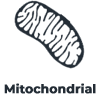
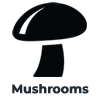


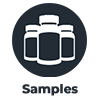
Ayurveda | Adaptogens | Amino Acids | Choline Supplements | Fitness Supplements | Immune Support | Metabolism Supplements | Mushroom Extracts | Natural Plant Extracts | Natural Nootropic Capsules | Natural Pain Support | Patented Nootropic Extracts | Sleep Support Supplements | Softgels | Solutions + Sublinguals | Enteric Coated Tablets | Nootropic Samples
Attention: These statements have not been evaluated by the Food and Drug Administration These products are not intended to diagnose, treat, cure or prevent any disease.


